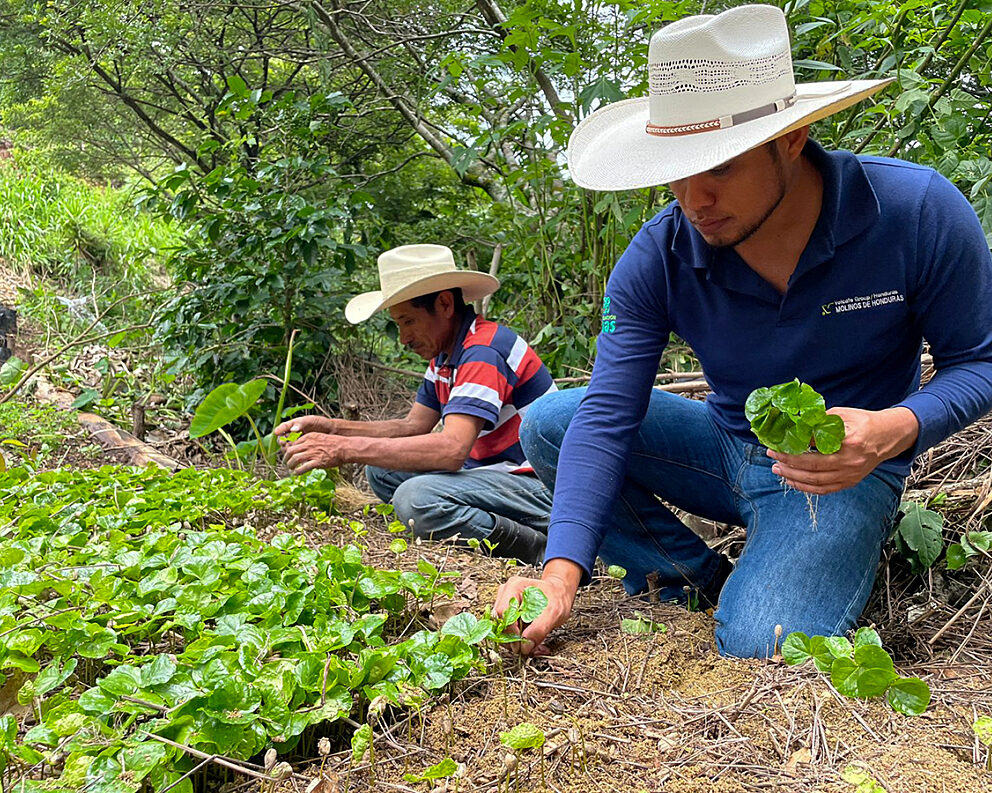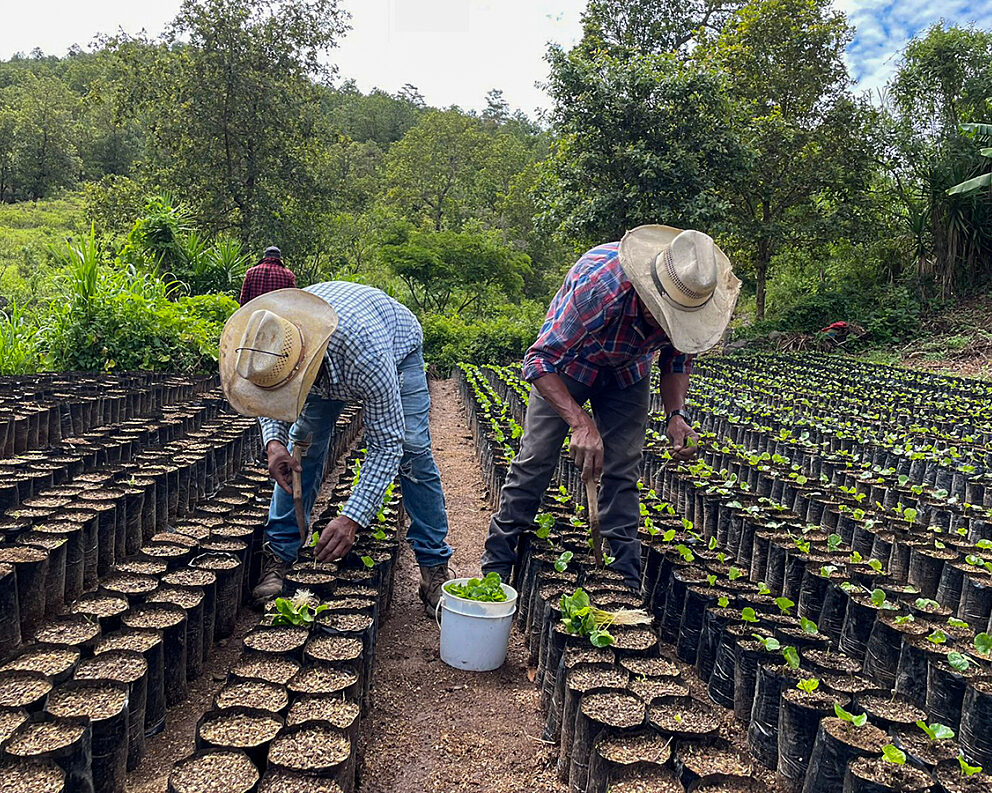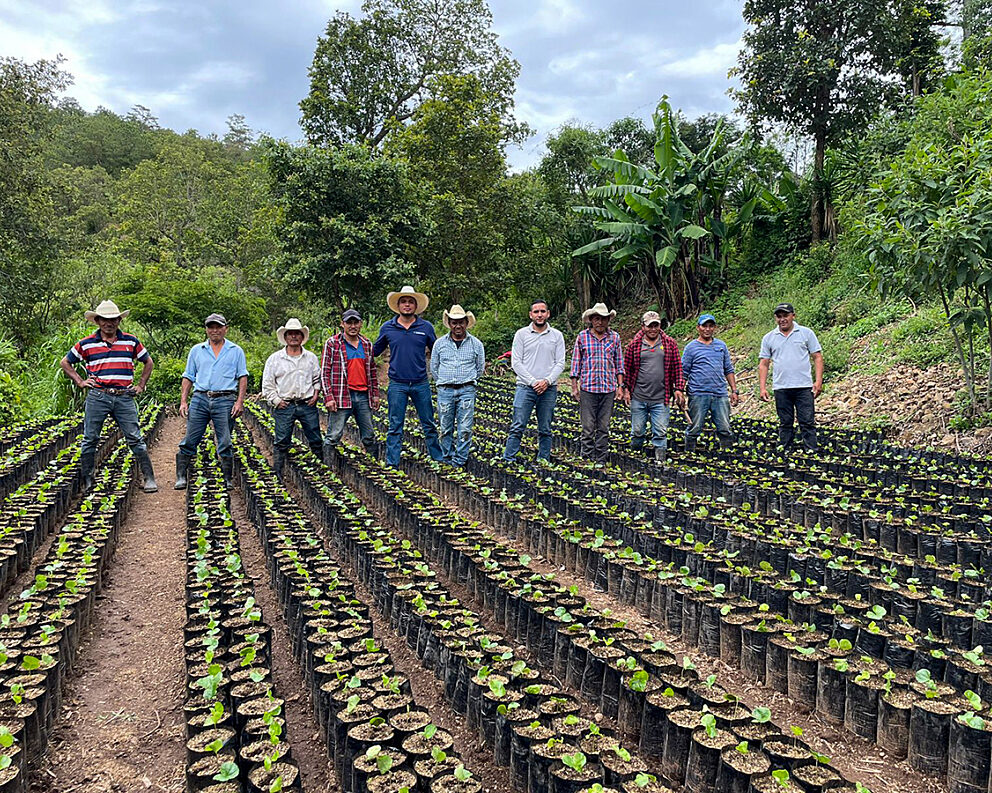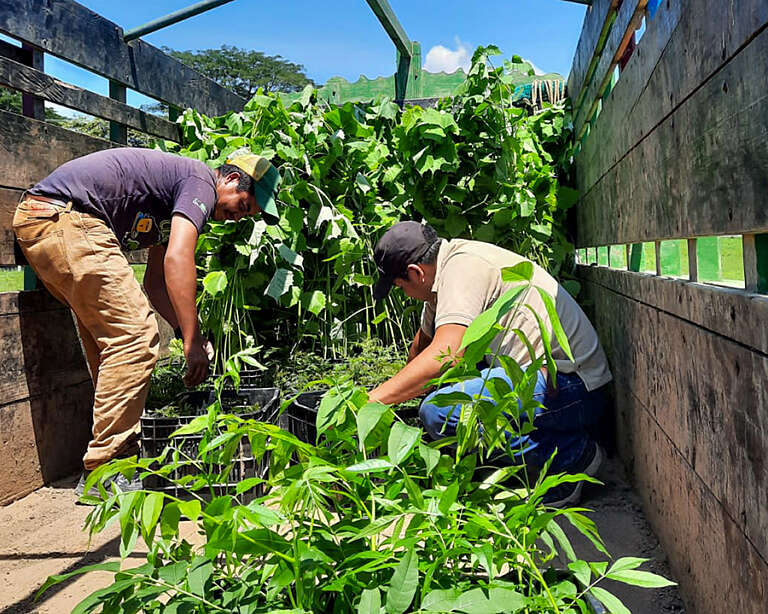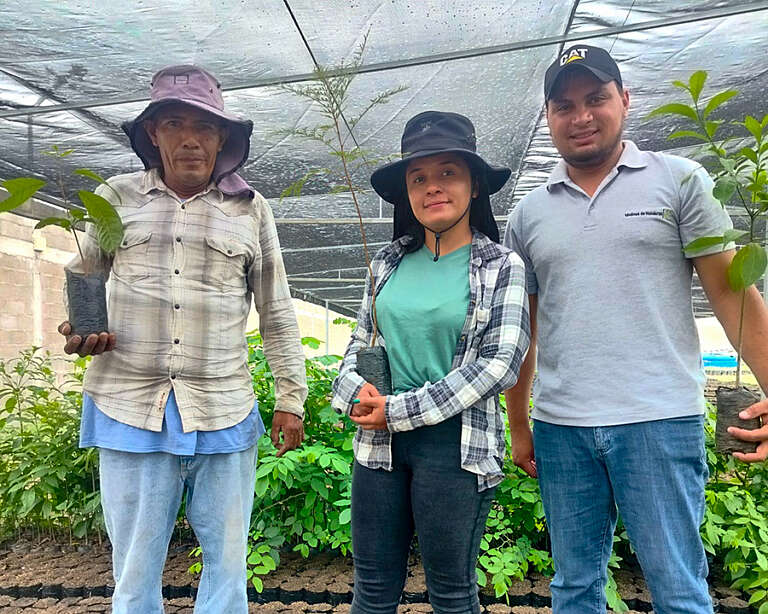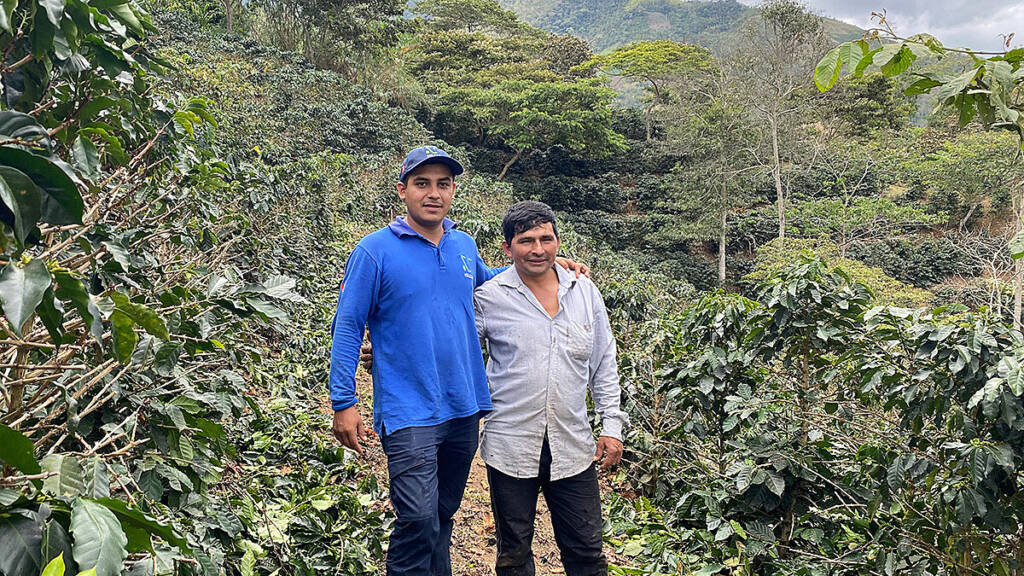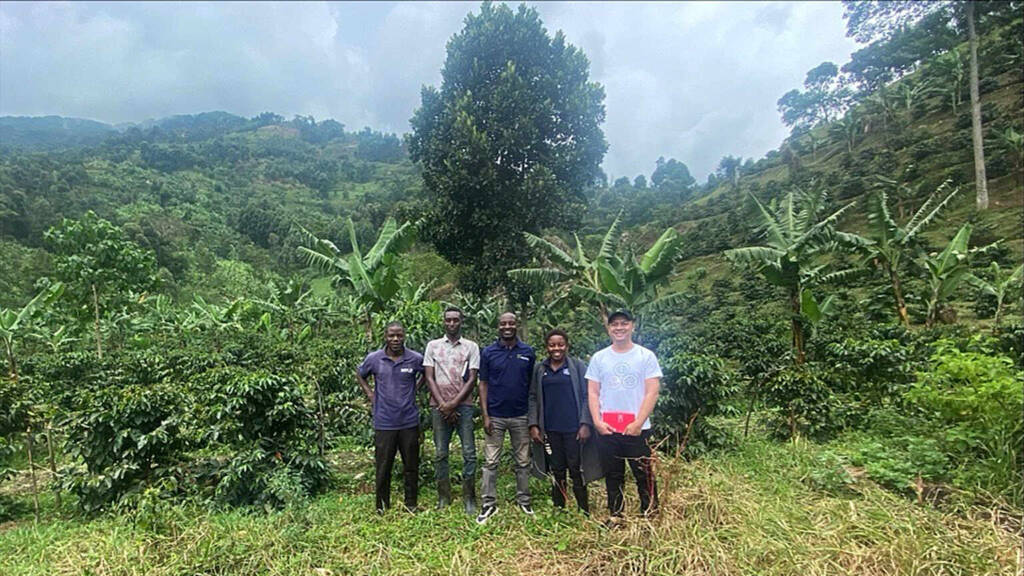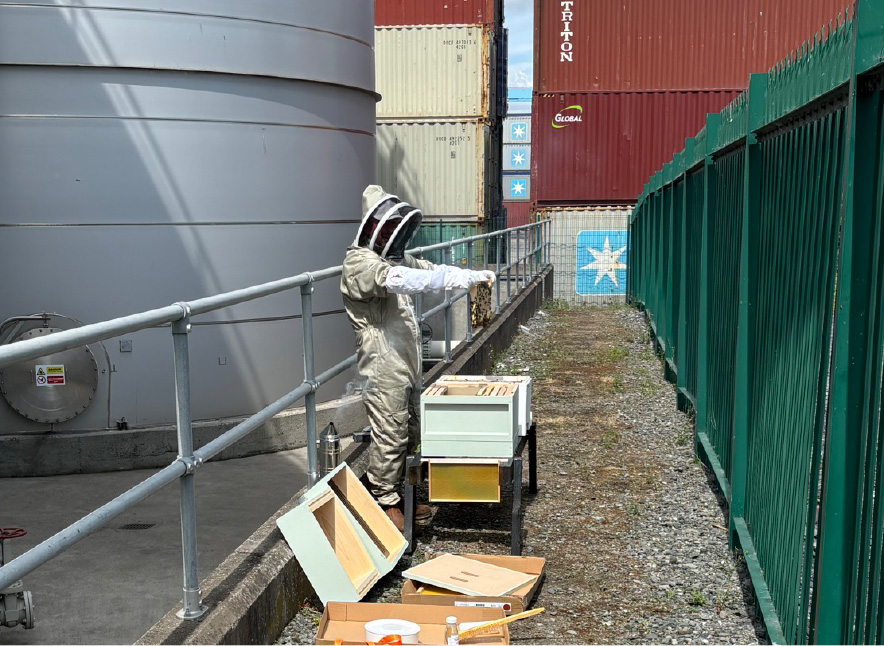Reforestation project in Honduras
Molinos de Honduras embarks on a journey to plant over one million trees
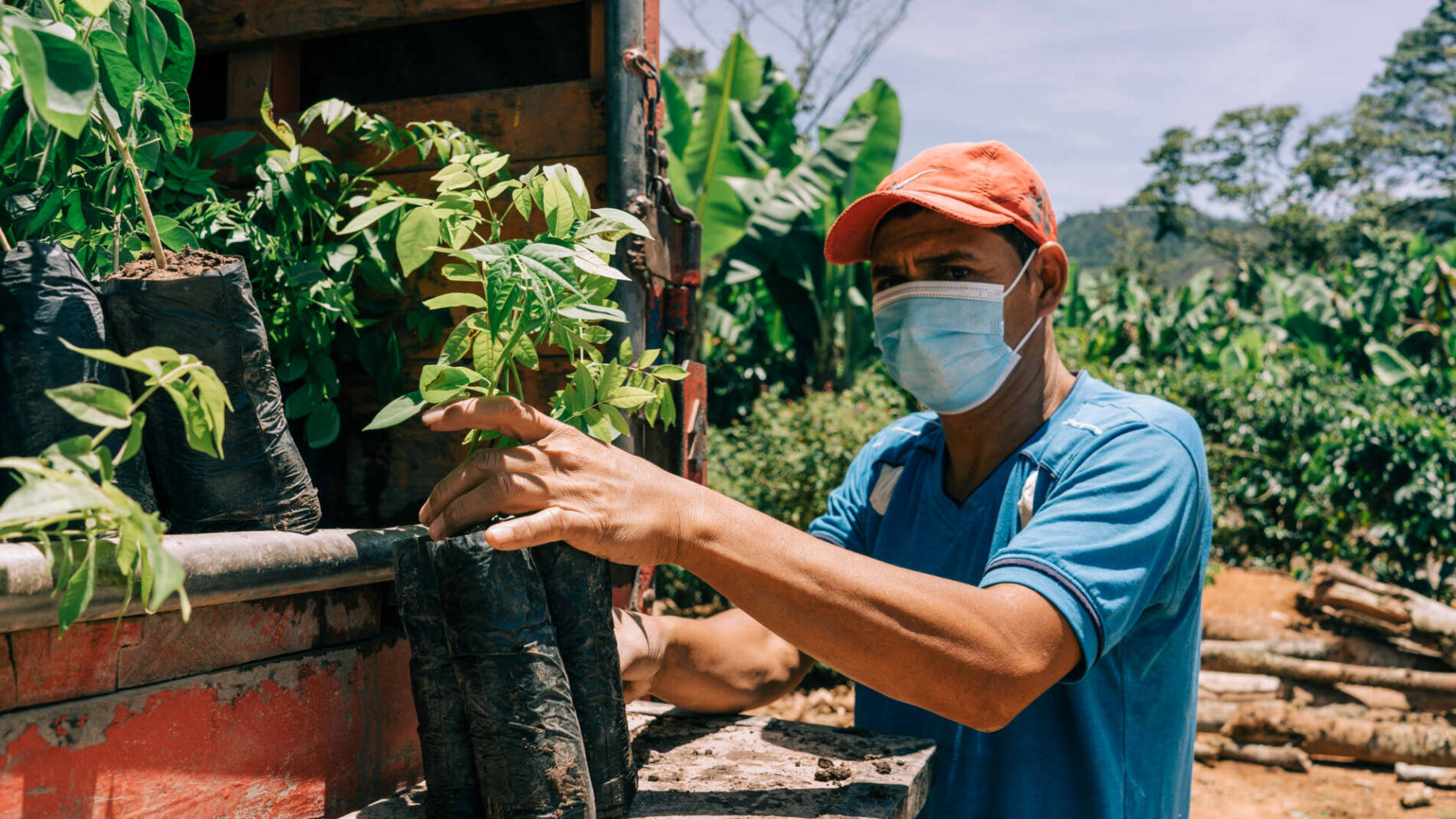
HN_Reforestation_DitributingTrees_1200x900
One million trees are to be planted within five years, in an effort to promote agroforestry, mitigate the effects of climate change, and improve coffee farmer resilience.
With only 16 percent of its original forest cover remaining, Honduras has a long history of deforestation. Whether resulting from agricultural expansion, drug trafficking or logging, deforestation in Honduras has accelerated since the 1990s, when forests still covered 50 percent of the country. According to the World Wildlife Fund (WWF), Honduras lost more than 37 percent of its forest cover between 2001 and 2019.
As the country is hit more and more regularly by strong weather events that can wreak havoc on farms and communities, Molinos de Honduras, Volcafe’s entity in the country, has embarked on a large-scale reforestation project to plant over one million trees in coffee-producing regions.
In a times of climate change, forests play a crucial role as they help regulate ecosystems and protect biodiversity. By planting one million native tree saplings within five years, Molinos de Honduras will boost carbon sequestration and make an important step in pursuit of stabilising the climate.
The project consists of distributing at least one million saplings to coffee producers for them to plant on their land and thus help reduce carbon emissions.
‘The project consists of distributing at least one million saplings to coffee producers for them to plant on their land and thus help reduce carbon emissions. This initiative goes well with all the project demands regarding climate change and regenerative agriculture but additionally we also want to be able to contribute to the environment as a company since this reality is ongoing and just increasing so any action, small or big, is necessary from everyone.’ explains Andrea Licona, Sustainability and Special Projects at Molinos de Honduras.
The initiative began in 2022 with the development of tree nurseries in different regions including Comayagua, Francisco Morazán, Vallecillo, Copán, Yoro, Santa Barbara, El Paraiso and Lempira, with the initial objective of distributing 200,000 tree saplings to coffee producers.
The nurseries can deliver over 20 different native forest plant varieties. The plants are distributed to coffee producers at no cost in exchange for them providing the labour to plant them. Molinos de Honduras’ Volcafe Way technicians do the necessary follow-up, support and monitoring of the plantings’ development. If a coffee producer suffers the loss of a plant, it is replaced for free.
Spanning a period of more than five years, the project aims to re-cover an area of 7,000 hectares (over 9,800 football pitches) and will involve approximately 3,000 coffee farmers in about 20 communities. Restoring 7,000 hectares could sequester up to 34,000 tons of carbon dioxide equivalent annually.
Karol Villamil, Sustainability Manager and Climate Action Lead at Volcafe adds: ‘The adoption of these good practices of reforestation and implementation of agroforestry systems in coffee-growing areas brings highly positive consequences for ecosystems and increases resilience and adaptation to climate change. Correctly implemented, these regenerative agricultural practices bring important medium-term results in terms of productivity and production costs, as well as improvements in biodiversity and reduction of the carbon footprint.’
The Volcafe team in Honduras works with several partners to make this ambitious project a reality, including the Instituto de Conservación Forestal, a governmental agency that provides forestry technical assistance; CATIE, a Costa Rican institute with whom Volcafe partners on agroforestry system management; and Solidaridad, a Dutch NGO. Through Volcafe’s partnership with the Cool Farm Alliance, Volcafe Way technicians collect the necessary data at farm level to implement the project efficiently and measure its impact on carbon sequestration.
The success of the reforestation project relies on the network and expertise that Molinos de Honduras has built over the years, implementing the Volcafe Way farmer support programme.
Volcafe Way agronomists and technicians have expanded the 13 coffee nurseries to include the raising of native tree saplings. Through the partnership with CATIE, the Volcafe Way teams receive training on agroforestry, which they put into practice while advising coffee farmers how to best plant and maintain the saplings.
The reforestation project is foremost a means to improve coffee farmers’ resilience in Honduras. Planting trees in or alongside coffee fields not only sequesters carbon dioxide but also creates beneficial shade for the coffee trees, improves the soil health and water retention, reduces soil erosion and the need for expensive chemical inputs, and safeguards biodiversity. In short, trees improve the ecological and agricultural performance of farms.
While experiencing the effects of climate change and looking for tools to mitigate them, we noticed that many coffee farms did not have shade management. As a first step in promoting agroforestry in the coffee fields, we created the tree nurseries.
‘The reforestation initiative began as a natural extension of our farmer support programme Volcafe Way, which aims at improving agricultural and environmental practices at farm level. While experiencing the effects of climate change and looking for tools to mitigate them, we noticed that many coffee farms did not have adequate shade management. As a first step in promoting agroforestry in the coffee fields, we created the tree nurseries, leveraging our farmer network and the partnership with CATIE and ICF.’ says Gerardo Torres, Farmer Support Organisation Lead in Honduras.
Two years into the reforestation project, Molinos de Honduras has planted over 215,000 trees in nurseries and distributed over 95,000 saplings to coffee farmers. As the saplings grow and become ready to be planted in the field, Molinos expects the distribution to increase in 2024 and reach one million trees distributed to coffee farmers by 2027.

